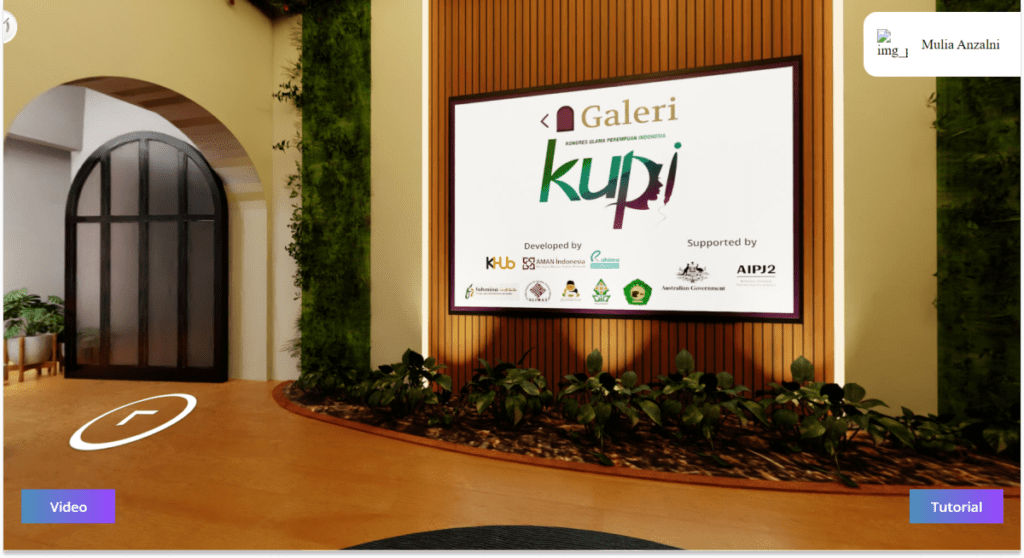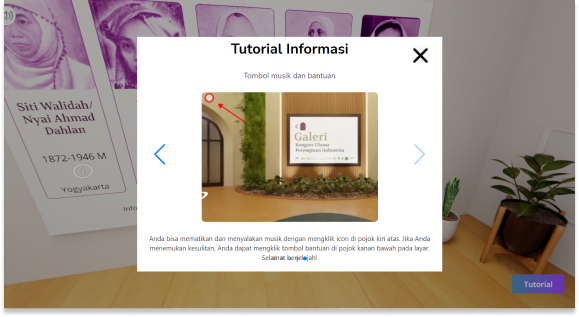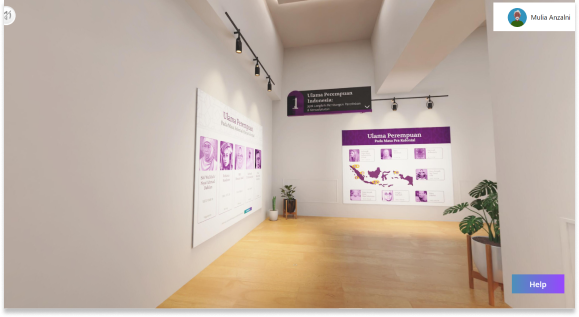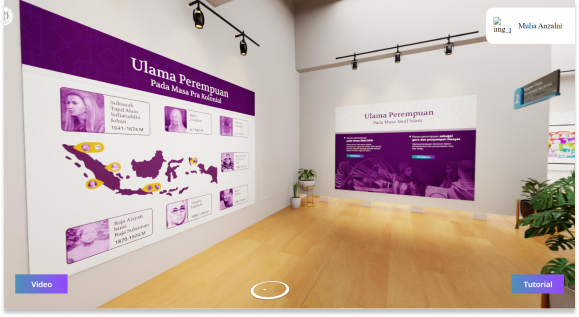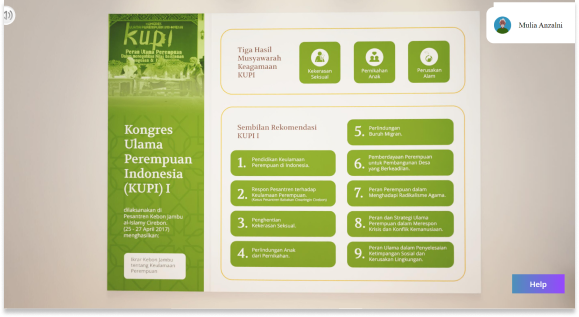Indonesian Women Scholars Congress (KUPI) Event
The Indonesian Women Scholars Congress (KUPI) utilizes an interactive virtual exhibition designed to showcase the roles and contributions of women scholars in various social, religious, and humanitarian aspects. Through this virtual exhibition, participants can explore various initiatives, research, and gender justice-based solutions developed by women scholars.
Background
In the digital era, the need for access to information and global networking is increasing. KUPI seeks to leverage technology by presenting a Virtual Exhibition as a way to reach a broader audience, both nationally and internationally. This Virtual Exhibition serves as a medium to document and disseminate the progressive thoughts of women scholars while providing an interactive space for participants to discuss and share insights.
Objectives
- Showcase the works and ideas of women scholars in a digital format that can be widely accessed.
- Increase public participation in discussions about gender justice in Islam through a virtual platform.
- Facilitate interaction and collaboration between women scholars, academics, and the global community.
- Provide access to resources and documentation related to studies, fatwas, and gender justice-based policy recommendations.
- Optimize digital technology to disseminate values of justice and humanity in Islam.
Strategies and Approaches
- Use of Immersive Virtual Technology
- Development of an easily accessible Virtual Exhibition platform with an interactive display.
- Integration of multimedia features such as videos, infographics, and 3D presentations for a more engaging experience.
- Presentation of Engaging and Informative Content
- A digital gallery showcasing research results, publications, and projects developed by women scholars.
- Webinar sessions and discussions allowing direct interaction with speakers.
- Virtual networking spaces to build connections with the global community.
- Collaboration with Various Stakeholders
- Involving religious organizations, academics, and communities in organizing the exhibition.
- Providing space for educational institutions, NGOs, and Islamic institutions to participate in the virtual exhibition.
Deliverables
- Interactive Virtual Exhibition Platform
- A digital exhibition space with various content accessible at any time.
- Video galleries and publications showcasing insights from women scholars.
- Live chat features and discussion forums to enhance participant interaction.
- Increased Reach and Engagement
- Thousands of participants from various countries can access the exhibition without geographical limitations.
- Direct interaction between participants and women scholars, as well as other stakeholders.
- Ongoing Documentation and Publication
- Reports on the outcomes of the Virtual Exhibition summarizing discussions and shared insights.
- Educational content in the form of recorded webinars, articles, and infographics that can be accessed later.
- New Networks and Collaborations
- Partnerships formed among various institutions supporting gender justice in Islam.
- Strengthening the community of women scholars in advocating for rights and social justice.
Link
Gallery
